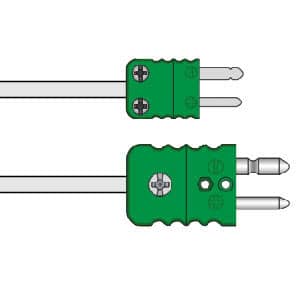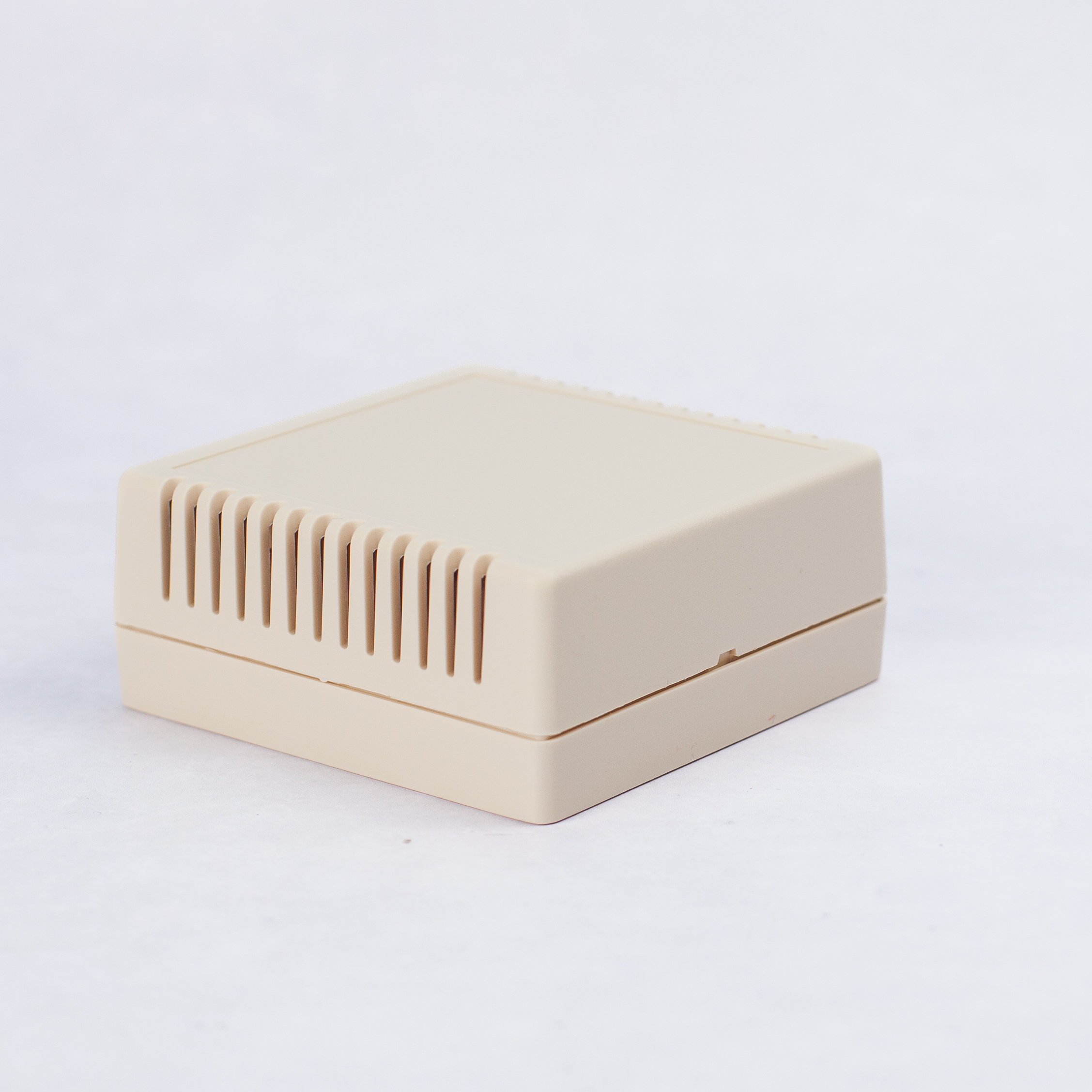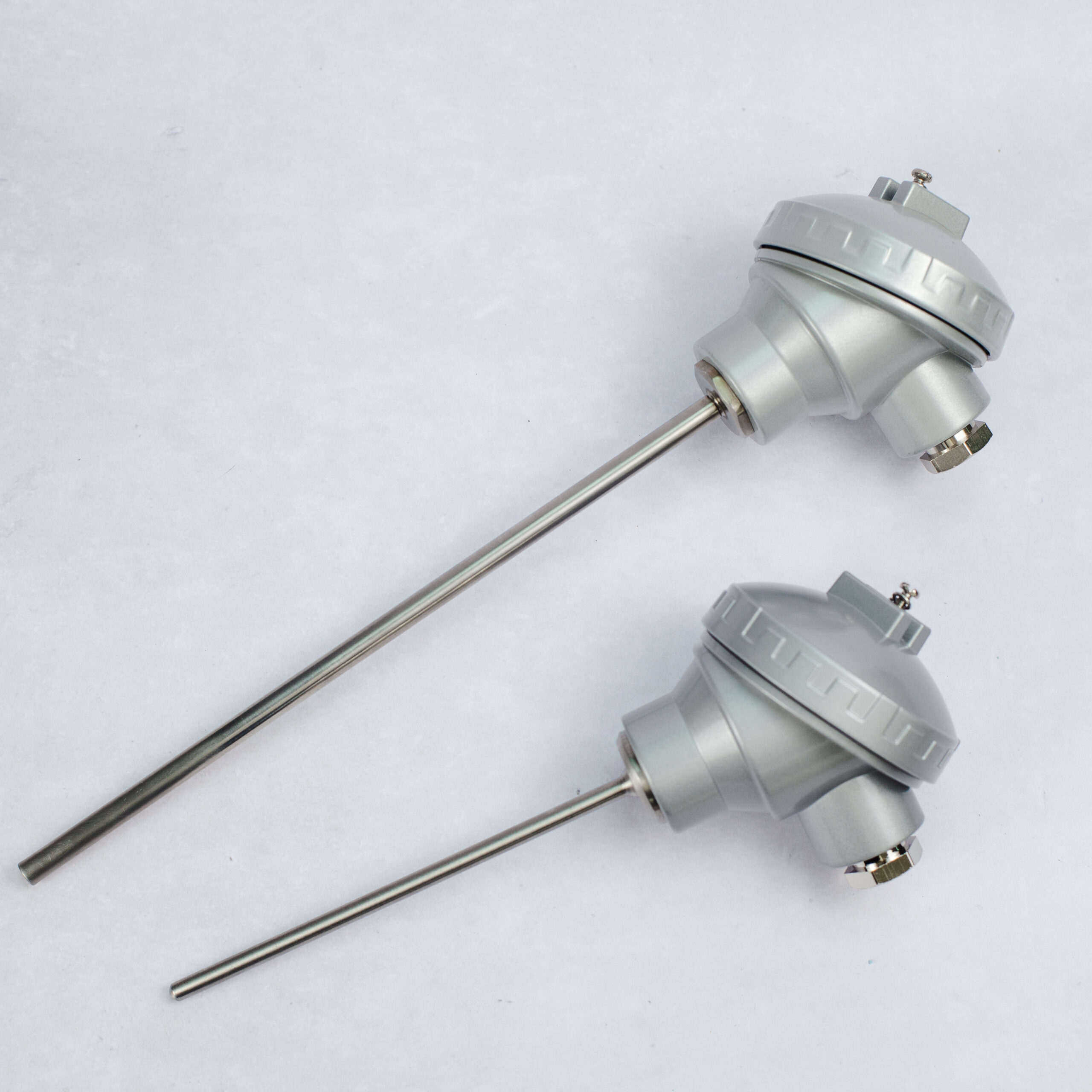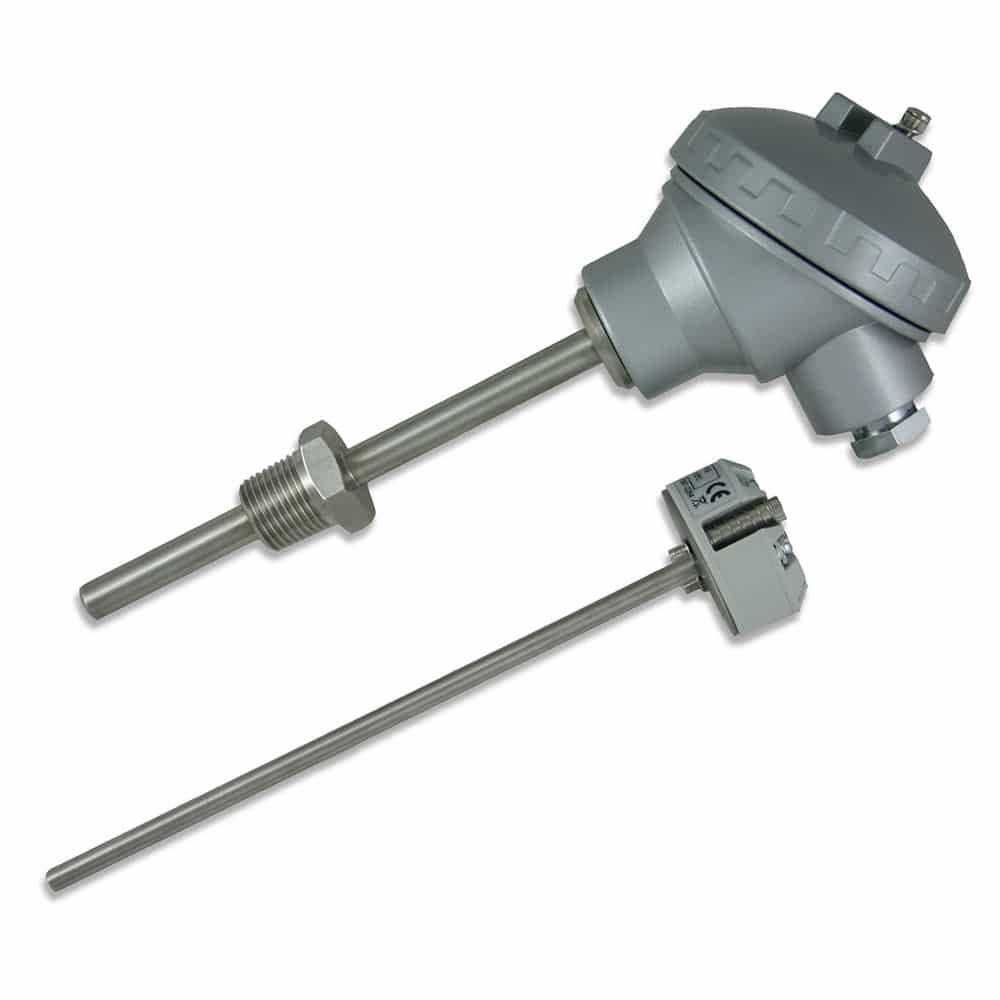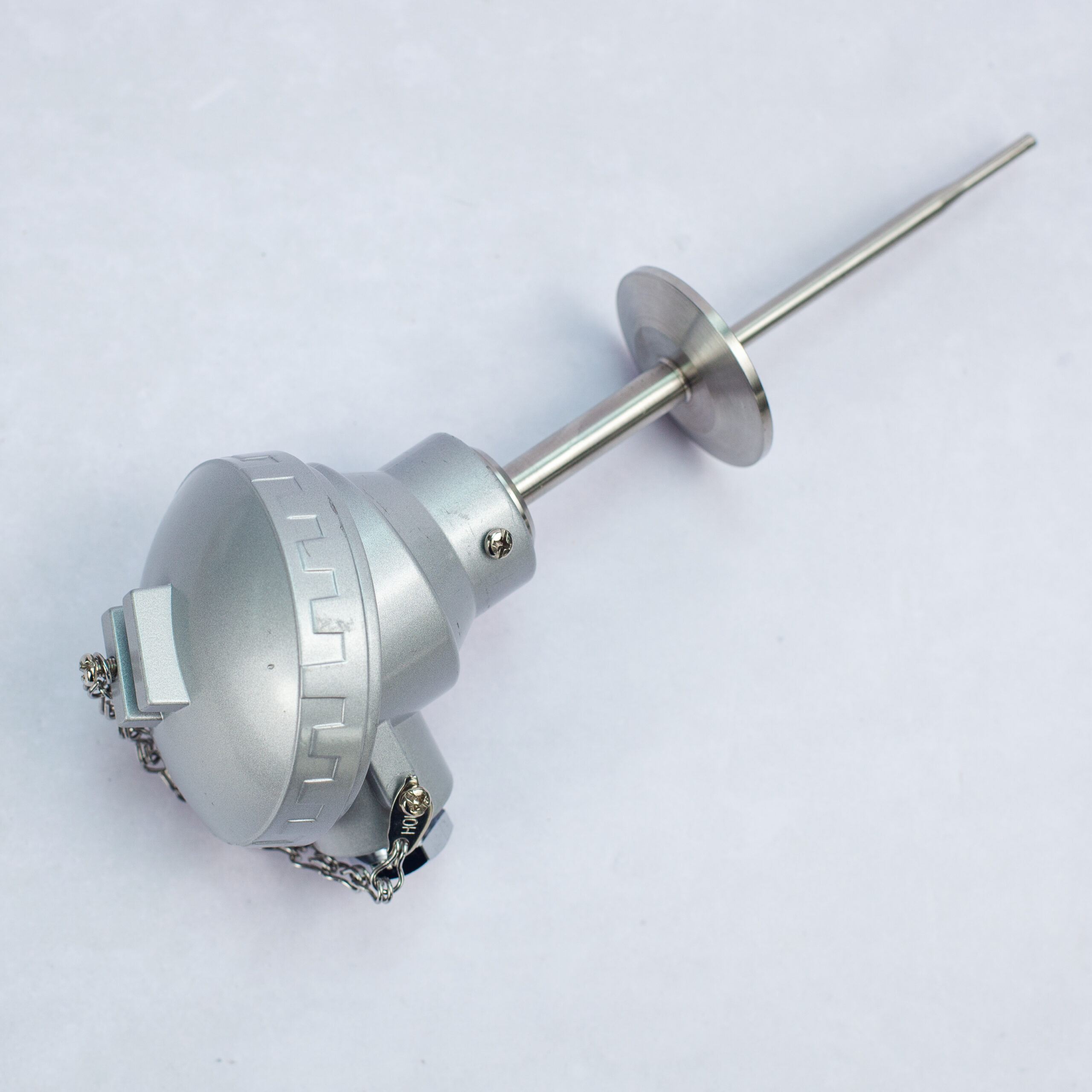How Accurate are Thermocouples?
Thermocouple Accuracy Comparison
Understanding the accuracy of thermocouples is essential for ensuring that industrial processes such as metal forging, chemical processing, and pharmaceutical manufacturing maintain the highest standards of quality and efficiency.
This article delves into the accuracy, reliability, and types of thermocouples, providing insights into how they can be effectively utilised in industrial applications to achieve optimal results.
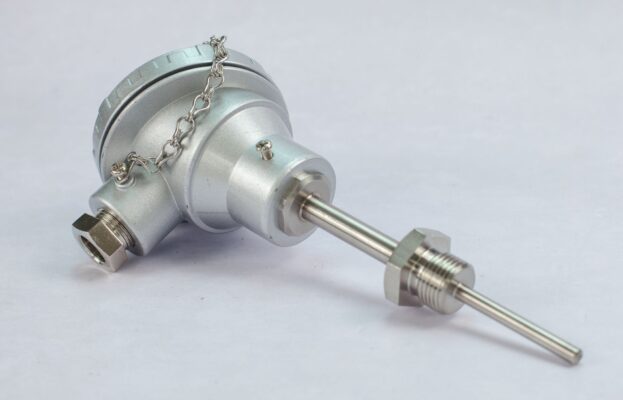
As a UK thermocouple temperature sensor manufacturer, we can custom-build thermocouple sensors for your application. Whatever you’re looking for, from a mineral-insulated thermocouple to a spring-loaded thermocouple, to a flying lead, or threaded thermocouple probes, we can help.
Explore the range of thermocouples we have to offer or contact us for a free quote.
Contact usSo, are thermocouples accurate?
Thermocouple Accuracy Explained
Thermocouples are widely used in industrial manufacturing due to their accuracy and versatility. The standard accuracy of thermocouples depends on the type and quality of the thermocouple.
What is the Standard Accuracy of Thermocouples?
Generally, thermocouples can measure temperatures with an accuracy of ±1°C to ±2°C. In industrial applications, where precise temperature control is crucial, such as in metal forging, glass production, or chemical processing, this level of accuracy ensures that processes remain within specified tolerances, thereby maintaining product quality and operational efficiency.
How Reliable are Thermocouples?
Thermocouples are known for their reliability, especially in harsh industrial environments. Their ability to withstand high temperatures, vibrations, and corrosive conditions makes them ideal for applications in furnaces, reactors, and boilers.
Regular calibration and maintenance are essential to maintain their accuracy. In the context of industrial manufacturing, reliable temperature measurements are critical for ensuring consistent production quality and adhering to safety standards.
What is the Uncertainty of Thermocouples?
The uncertainty of thermocouples refers to the potential deviation in temperature readings, which can arise from various factors such as thermal gradients, electromagnetic interference, and ageing of materials. In industrial processes, understanding and minimising uncertainty is vital.
For example, in the pharmaceutical industry, where precise temperature control is necessary for product integrity, knowing the uncertainty helps in making informed decisions about process adjustments and quality control measures.
Difference in Thermocouple Types
Thermocouples come in various types, each with specific characteristics suited to different industrial applications.
Common types include Type K, J, T, and E, each with varying temperature ranges and accuracies.
- Type K = Nickel / Chromium(+), Nickel / Aluminium (-)
- Type T = Copper (+), Copper / Nickel (-) Also known as Constantan
- Type J = Iron (+), Copper / Nickel (-) Also known as Constantan
- Type E = Nickel / Chromium(+), Copper / Nickel (-) Also known as Constantan
- Type N = Nickel / Chromium / Silicon (+), Nickel / Silicon / Magnesium (-)
- Type R = Platinum / 13% Rhodium (+), Platinum (-)
- Typs S = Platinum / 10% Rhodium (+), Platinum (-)
To get an idea of the typical designs available check out some of our thermocouple sensors.
Thermocouple Sensors for Industrial Applications
Temperature Probes & Sensors
Thermocouple Sensors for Industrial Applications
Thermocouple for Ambient Air Temperature Measurement Sensor – PPL10-T
Temperature Probes & Sensors
Thermocouple Reference Tables
These tables can help you quickly compare different thermocouple types and select the best one for your specific industrial application.
Choosing the Right Thermocouple
How Do I Choose Between Different Types of Thermocouples?
Choosing the right thermocouple depends on several factors, including the temperature range, environmental conditions, and required accuracy. In industrial manufacturing, it is crucial to select a thermocouple that can withstand the specific conditions of your process.
For example, Type K thermocouples are suitable for high-temperature applications such as metal heat treatment, while Type T thermocouples are better for lower-temperature applications like food processing and laboratory environments.

Why are Type K Thermocouples so Popular?
Type K thermocouples are popular due to their wide temperature range, durability, and cost-effectiveness.
They are particularly useful in industrial processes such as furnace monitoring, gas turbine exhaust measurements, and kilns, where high temperatures are common. Their reliability and accuracy in these demanding conditions make them a preferred choice for many industrial applications.
Thermocouple Response Time
Thermocouple response time refers to the time it takes for the sensor to reach a temperature equilibrium with its surrounding environment. This is an important factor to consider when monitoring rapidly changing temperatures or processes requiring a fast response.
Factors affecting response time include:
- Probe diameter: Smaller diameter thermocouples generally have faster response times.
- Sheath material: The thermal conductivity of the sheath material can influence response speed.
- Velocity of the measured medium: Faster-moving fluids or gases will improve response time.
Cost Considerations of Different Thermocouple Types
Thermocouple costs can vary depending on several factors, including:
- Type of thermocouple: Generally, more exotic metal alloys used in high-temperature thermocouples (like Type R or S) will be more expensive than common types (like K or J).
- Sheath material: Specialised sheath materials like Inconel for high-corrosion environments will increase the cost.
- Probe complexity: Simple straight probes are less expensive compared to probes with intricate designs or features like thermowells.
By understanding these factors and considering your specific application requirements, you can choose a cost-effective thermocouple solution that delivers the necessary level of accuracy and performance.
Installation and Usage Tips for Thermocouples
- Proper placement: Position the thermocouple tip directly in the medium you want to measure. Avoid thermal gradients or areas with air pockets that could affect readings.
- Thermowell protection: In harsh environments or processes with fast-flowing media, consider using thermowells to shield the thermocouple from damage or contamination.
- Secure connections: Ensure a tight connection at the thermocouple reference junction to avoid errors.
- Regular maintenance: Schedule periodic calibration and inspection of your thermocouples to maintain accuracy and identify any potential issues.
Optimising Industrial Processes with Accurate Temperature Measurement
Understanding thermocouple accuracy is a crucial step towards achieving optimal results in your industrial processes. By ensuring your chosen thermocouple delivers the necessary level of precision, you can maintain tight control over temperature-sensitive operations, guaranteeing consistent product quality and efficient production.
As a leading UK manufacturer of thermocouples, Process Parameters Ltd. offers a comprehensive range of custom-built thermocouple sensors to meet your specific application needs.
Explore our extensive product range to find the perfect thermocouple for your requirements, or contact us today for a free quote and discuss your specific needs with our expert team.
Email us at sales@processparameters.co.uk, call 01628 778788, or complete our online enquiry form.
Send an EnquiryPlatinum Resistance Thermometers (RTD Sensor, PRT, Pt100 Sensors, Pt1000)
RTD Pt100 Temperature Sensor PPL3-P, IP68 KNE Terminal Head, 4-20mA Transmitter
Platinum Resistance Thermometers (RTD Sensor, PRT, Pt100 Sensors, Pt1000)
Platinum Resistance Thermometers (RTD Sensor, PRT, Pt100 Sensors, Pt1000)
Platinum Resistance Thermometers (RTD Sensor, PRT, Pt100 Sensors, Pt1000)
Related Guides:
- What is a Thermocouple?
- Advantages and Disadvantages of Thermocouples
- What Is A Temperature Sensor?
- How Does a Thermocouple Work?
- What Are Type K Thermocouples?
- Differences Between J and K Type Thermocouples
- RTD vs. Thermocouple: Choosing the Right Temperature Sensor
- Thermistors vs Thermocouples: Choosing the Right Sensor
- 5 Different Types of Thermal Sensors


